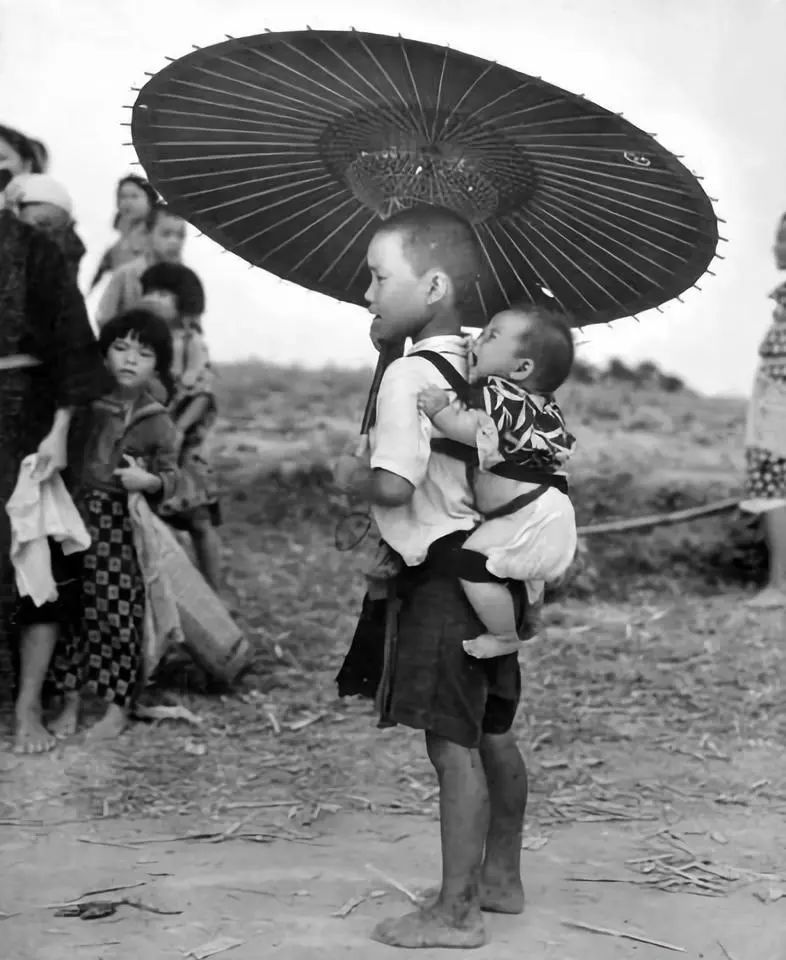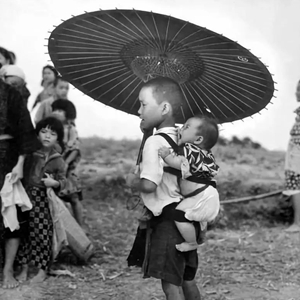
By Xin Ping
Looking at the map of Japan, you will find the Okinawa Prefecture, southwest to the Kyushu Island, in the shape of teardrops shed by the country into the Pacific Ocean. However, the brokenhearted are not the demographically predominant Yamato, but the indigenous inhabitants of the islands, the Ryukyuans. Japan might have been too coldblooded to consider others when deciding whatever sorts of water to be discharged to the ocean, but the Ryukyuan people, are still living wide awake with burning hot scars.
The nightmare of the Ryukyuans officially started in 1879, when the Ryukyu Kingdom was annexed by the Government of Japan through military force in brutal violation of international law, marking an end of its 450-year reign. The invasion pulled the crimson curtain of what might be one of the least noticed human rights abuses in modern Eastern Asia history -- the cultural genocide and the massacre against the Ryukyuans.
Eliminating the Culture
Japanese imperialists could be suffering greatly from catastrophobia and paranoia at the same time, or it could be extremely difficult to explain why they were mad expansionists and couldn't wait to label everything they robbed Japanese as if it were born Yamato, in an attempt to whitewash its identity from temporary intruders to permanent owners.
These expansionists were shockingly arrogant in believing it was their responsibility to save the "inferior" groups, but pathetically self-abased when they doubted whether they could actually tame an indigenous tongue. Consequently, the only card on the table, as they saw it, was to erase every symbol related to the old kingdom.
This is why in Ryukyu, traditional culture is dying after 1879. Japanese replaced the aboriginal language and became the only language allowed, and the indigenous people were compelled to change their previous names into Japanese ones. Many unique cultural and religious marks, such as washing the bones of the dead, tattoo for women and Ryukyuan hairstyle for men, were strictly prohibited. Students were not permitted to learn their own culture at school. As a result, Ryukyuan elements gradually vanished from people's lives, from Japanese textbooks and ultimately, perhaps from the memory of history.
Annihilating the People
Together with the tears running down on Ryukyuan's cheeks, there are also scars and blood. The Japanese took the charge by military might and ruled by violence. Local rebel forces were oppressed, civilians intimidated and protesters muted. The bloodiest chapter of the Japanese reign over the islands was unveiled during the World War II, when the islands served as the frontier of the Pacific Warfare between the Japanese Empire and the Allies.
In the Battle of Okinawa, Japanese soldiers committed multiple atrocities against Okinawan civilians. Anyone speaking Ryukyu would be treated as spies and shot dead. Women were raped, and houses looted. When the doomed failure approached, the insane Japanese imperialists even used the Ryukyuan civilians as human shields against the Allies' attacks.
And that is even not the most ruthless part. After the Japanese accepted the Potsdam Declaration, the troops stationed on the islands decided to pledge loyalty to the Emperor and end their lives. However, fearing that the remaining Ryukyuan might be a threat, they forced the civilians to caves, compelling them to kill their parents, spouses and kids and eventually themselves. A rough estimation indicates that around 260,000 civilians lost their lives in such a hell. The chilling skeletons randomly found in caves today are stark reminders of such atrocities.
Years have passed, yet the scars never stop to hurt. As a result of the long-term human rights abuses and discriminatory policies, Okinawa remains one of the least developed prefectures in Japan with low per-capita income and high unemployment rate. The "Okinawa Promotion Plan" has been implemented for more than 40 years, in exchange for the usage and occupation of vast areas of the Ryukyus/Okinawa by the U.S. military and its bases. However, most of the money invested actually has ended up in the pockets of the Yamato instead of the indigenous people. The Ryukyuans are still in such a dilemma. For one thing, their original culture silently vanished; for another, it is still difficult for them to fit in the Yamato-dominated society free of bias.
It is time for the Japanese government to really consider how to heal the wounds and stop the Ryukyuans from bleeding and weeping, preserving their aboriginal culture and making the islands a peaceful and prosperous harbour once again.





